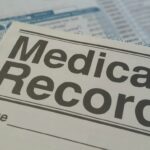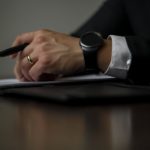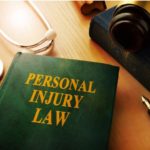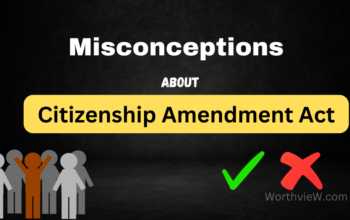Experiencing a personal injury can be both emotionally and physically draining. Not only do you have to deal with the pain and trauma of the injury itself, but there’s also the added stress of navigating the subsequent steps. The journey from injury to recovery involves medical care, legal considerations, and sometimes, seeking compensation.
Here’s a comprehensive guide to the necessary steps to take after suffering a personal injury.
1. Know Your Rights After A Personal Injury
Having a clear understanding of your rights after suffering an injury can empower you to take the right steps in seeking justice and compensation. Often, victims are unaware of the breadth of rights they hold, which can lead to missed opportunities for redress. The following are your rights after a personal injury:
- Right to Compensation: Every victim can seek compensation for their injuries if another party’s negligence caused them. This compensation can cover medical bills, lost wages, pain and suffering, and other damages.
- Right to Representation: In the chaos following an accident, many victims may not think of consulting legal experts. However, in cities with bustling populations and busy streets, like Dallas, seeking legal advice can be a prudent choice. Speaking with personal injury lawyers in Dallas early in the process can provide insights into your rights and potential compensation. This representation can significantly increase the chances of obtaining a favorable outcome, given the complexities of personal injury law.
- Right to Reject an Offer: Insurance companies often provide initial settlement offers. As a victim, you can reject any offer and seek a more suitable amount, either through negotiation or in court.
By knowing and protecting your rights after a personal injury accident, you can increase your chances of getting the compensation you deserve and holding the responsible party accountable.
2. Understand The Severity Of The Injury
First and foremost, ascertain the severity of your injuries. Some injuries might appear minor initially but can become severe or cause long-term damage if not addressed promptly. Always consult a medical professional, even if you believe the injury to be minor. They’ll provide a clear understanding of the nature and severity of your injuries.
3. Seek Medical Attention Immediately
Whether it’s a minor cut or a significant injury, getting immediate medical attention should be your priority. Medical records documenting your injuries will be crucial, especially if you decide to pursue a legal case. Prompt medical care also ensures that injuries don’t worsen or lead to complications.
4. Consider Rehabilitation
Depending on the severity of the injury, rehabilitation might be necessary. This can range from physical therapy to counseling. Rehabilitation aids in the recovery process and can also be a factor when determining compensation in legal proceedings.
5. Seek Emotional Support
Personal injuries can take a toll on mental health. Whether it’s through counseling, support groups, or loved ones, ensure you have a support system in place. Emotional recovery is just as vital as physical recovery.
6. Notify The Relevant Authorities
Depending on the nature of the injury, it may be necessary to notify certain authorities. For instance, if it’s a road traffic accident, informing the police is essential. If the injury occurred at a place of work, your employer should be notified. Following the correct protocols ensures you remain within the boundaries of the law and can be critical in any legal proceedings.

7. Inform Your Insurance Company
Most personal injuries will involve insurance claims. Ensure you notify your insurance company about the injury as soon as possible. But remember, before accepting any settlement offers, it might be wise to consult with a legal expert. Often, initial offers from insurance companies might not cover the full extent of your damages or losses.
8. Document Everything
From the moment the injury occurs, start documenting. Capture photos of the injury, the location where it happened, any potential hazards or conditions that might have contributed, and witness statements if available. This information will be invaluable if there’s a need to prove fault or negligence later.
9. Seek Expert Witnesses
In more complex personal injury cases, expert witnesses can play a pivotal role. They provide specialized knowledge in various areas that can help establish facts or give clarity to specific aspects of the case. The following are some expert witnesses who can help you with your injury claim:
- Medical Experts: They can testify about the nature and extent of injuries, the treatment required, and the potential long-term effects.
- Accident Reconstruction Experts: For complicated accidents where it’s challenging to determine what exactly occurred, these experts can recreate the scene to provide insights.
- Economic Experts: In cases where victims suffer from long-term disabilities or economic loss, these experts can project future economic losses, including lost wages, diminished earning capacity, and other pertinent factors.
By seeking expert witnesses, you can strengthen your case and increase your chances of success.
10. Keep Track Of Medical Expenses And Lost Wages
After an injury, there could be mounting medical bills and potential loss of income if you’re unable to work. Keeping a detailed record of all these expenses is vital. This will not only help in managing finances but can also be crucial if you’re seeking compensation.
11. Avoid Admitting Fault
It’s human nature to want to apologize or express regret when an unfortunate event occurs. However, in the context of personal injuries, even an innocent apology can be misconstrued as admitting fault. Until all facts are established, refrain from making any statements that could be interpreted as accepting responsibility.
12. Stay Off Social Media
In today’s digital age, it’s tempting to post and share personal experiences on social media. However, when it comes to personal injuries, it’s best to stay off these platforms. Anything shared about your injuries can potentially be used against you, especially if there’s a legal case in progress.
13. Consider Mediation
Before taking the matter to court, consider mediation. It can be a faster and less confrontational method to resolve disputes. Both parties come together with a neutral third party, aiming to reach a mutually beneficial agreement. This can often save time, money, and emotional distress for everyone involved.
14. Prepare For A Lawsuit
If mediation doesn’t result in a resolution, preparing for a lawsuit becomes the next step. This involves gathering all evidence, consulting with legal experts, and understanding the potential outcomes. Lawsuits can be lengthy and emotionally taxing, so ensure you’re mentally and financially prepared.
15. Ensure Continuous Communication With Your Attorney
Ensure you maintain regular communication with your attorney. They should keep you updated on the progress of the case, any potential offers, and the next steps. Open communication ensures you’re always in the loop and can make informed decisions.
16. Understand The Statute of Limitations
Every state has a statute of limitations for personal injury claims. This is essentially a deadline by which you need to file a lawsuit. Be aware of these timelines to ensure you don’t miss out on potential compensation due to technicalities.
The Role Of Insurance In Personal Injury Cases
Insurance plays a significant role in many personal injury cases. Understanding the dynamics of how insurance companies operate can equip you with better knowledge during negotiations or legal proceedings.
- Claim Adjusters: After reporting an injury to an insurance company, they’ll assign a claim adjuster to your case. Their role is to evaluate the claim and determine how much the insurance company should ideally pay. Remember, adjusters work for the insurance company and, at times, may aim to minimize the payout. Therefore, it’s essential to be wary of their tactics to protect your rights and interests.
- Factors Influencing Compensation: Insurance companies consider various factors when determining compensation. These can include the severity of the injury, the clarity of who’s at fault, the potential long-term impact of the injury, and any pre-existing conditions.
- Uninsured Or Underinsured Motorist Coverage: In instances where the at-fault party doesn’t have insurance or has inadequate insurance, your own insurance might cover the damages under the uninsured or underinsured motorist coverage.
By understanding the role of insurance in personal injury cases, you’ll know how to deal with the insurance company more effectively.
The Psychological Impact Of Personal Injuries
Physical injuries are often accompanied by psychological trauma. Whether it’s PTSD, anxiety, depression, or other mental health challenges, the psychological aftermath can be just as debilitating as the physical injuries. Here’s the psychological impact of personal injuries:
- Therapy and Counseling: Post-injury, many victims find solace and recovery in therapy. It’s crucial to consider this as part of the recovery journey.
- Impact on Quality of Life: Injuries can alter the quality of life, affecting hobbies, routines, and daily activities. Recognizing this change is essential for holistic recovery.
- Compensation for Emotional Distress: In some cases, victims can seek compensation for emotional distress, emphasizing the significance of psychological impact in personal injury cases.
In the whirlwind following a personal injury, it can be challenging to keep everything straight. But with the right knowledge, professional guidance, and support, you can navigate the complexities, ensuring that you get the justice and compensation you rightfully deserve.
Wrapping Up
Navigating the aftermath of a personal injury can be complex and overwhelming. However, by following the outlined steps and seeking the right help at the right time, the journey to recovery can be smoother. Remember, every personal injury is unique, so always consult with professionals to understand the best course of action tailored to your situation.
Related Posts












